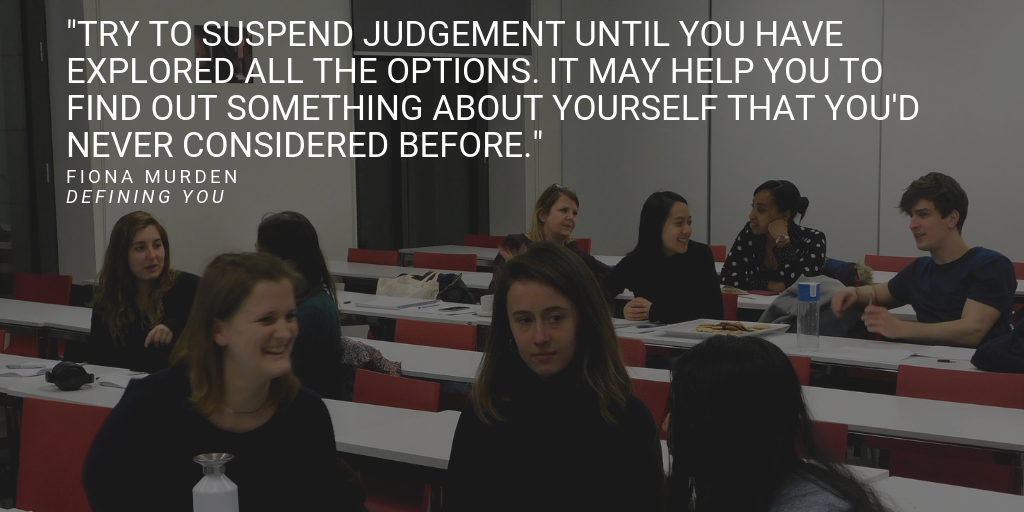
A huge thank you to Fiona Murden and Jon Hendry Pickup for coming in to speak to us last week about the importance of curiosity for career decision-making. We’ve compiled some of the highlights for those of you who weren’t able to make it. If this event appeals to your own sense of curiosity then make sure you keep on checking the Career Hub where new events are added regularly.
Why is curiosity important?
Curiosity is integral to business. It makes others feel valued, promotes innovation and creativity, is connected with individual health and well being, and is as vital as IQ in determining career success.
Being curious enables you to be adaptable: if you are likely to work in different companies, cultures, and languages then being curious about what is happening around you will be key to not only acclimatising to difference but thriving from it.
Curiosity is not something that you only need at the beginning of your career and then can stop caring about as you progress. It informs leadership practices that ask the big question: what is really going on here? Regardless of how long you have worked at a company, this question will always prompt answers which can fix problems, probe success, and create a culture which is open.
It’s important to be clear on what you’re good at by asking questions and getting feedback from others. While getting feedback might sometimes seem daunting, the ability to fail and not carry it with you is a marker of success.
How can you learn to be more curious?
You can understand your curiosity by taking a curiosity test (there’s one in Fiona’s book Defining You). Focusing on the areas where you’ve scored lower will enable you to improve your level of curiosity.
How can you use curiosity to define your goals?
Creating a timeline of key events in your life will enable you to pick out trends and patterns: the types of activities that you orient towards or return to, the moments you value, the conditions which work for you. You can use this timeline to work out what is most meaningful for you as well learn what things drain you, and that can help inform your goals.
About the speakers:
Fiona is a chartered psychologist and leadership coach who works with multi-national companies and influential leaders. She has recently published a book, Defining You, which aims to democratise the information that behavioural psychologists provide, improving the physical and mental health of those who read it.
Jon is the Managing Director of Butlin’s and has worked with Fiona. Previous to working at Butlin’s, he was the CEO of restaurant chain Prezzo, COO of Travelodge and Operations Director of Tesco PLC. His leadership style is founded on being tirelessly curious, receiving feedback from colleagues, and being comfortable with ambiguity.





